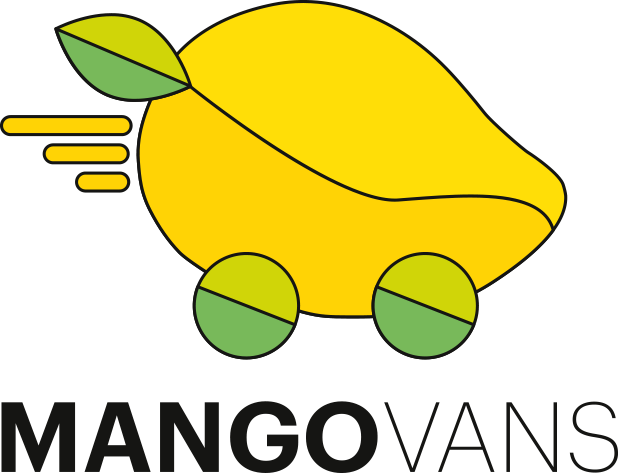Zoning Laws and Parking Regulations: What Mobile Business Owners Need to Know
When looking for van conversion companies, most mobile entrepreneurs are thinking about layout, electrical systems or style. But there’s another crucial factor that can make or break your mobile business success: zoning laws and parking regulations. These laws vary from city to city and can impact where you can operate and park your van.
In this guide we’ll help you navigate the legal landscape so you can hit the road with confidence—and stay compliant every mile of the way.
Why Zoning Laws and Parking Matter
Whether you’re launching a mobile coffee shop, boutique, salon or photography studio, understanding local laws is key.
Challenges for Van-Based Businesses:
Not every city allows commercial activity in public spaces
Parking restrictions can limit access to high-traffic areas
Overnight parking may be prohibited in residential zones
Before you choose your van layout, talk to conversion specialists who understand not just build quality but also compliance with your city’s regulations.
Why Local Laws Vary So Much:
Cities enforce different zoning laws to control urban congestion
Residential neighborhoods often restrict commercial operations
Historic districts may have aesthetic requirements
Knowing these challenges early can prevent fines, shutdowns or relocation.
How to Stay Compliant
Once you know where you want to operate, here’s how to stay legally compliant.
1. Know Your Zone Classifications
Commercial Zones: Usually best for food trucks and retail vans
Mixed-Use Zones: May allow both residential and commercial activity
Residential Zones: Often prohibit business operations and overnight parking
2. Research Permit Requirements
Temporary use permits
Street vending licenses
Special event vendor permits
Talk to your city’s zoning or planning department to get an updated list of requirements.
3. Parking Rules That Affect Your Business
Time-restricted zones (e.g. 2-hour max parking)
No-parking zones during rush hour
Loading-only areas
Cities like LA, Austin and Portland all have different laws. Some have designated mobile vending spots. Others limit vending to private property.
4. Considerations for Specific Business Types
Food Trucks and Mobile Kitchens
Must comply with Health and Safety Standards for Food and Retail
Need access to commissary kitchens for cleaning and storage
Mobile Retail and Salons
Noise ordinances may limit generators or music
ADA compliance may be required for accessibility
Mobile Offices or Studios* Client privacy can be an issue in public spaces
May need liability insurance and special signage permits
Insurance
Understand Insurance Requirements for Business Vans in your state
Liability, theft and damage insurance are often required for commercial use
Some cities require proof of insurance to issue permits
Equipment That Supports Compliance
A low profile air conditioner keeps you cool without drawing attention
The Victron charge controller helps you stay powered in zones that prohibit generators
Set Up for Long-Term Success
Getting the green light isn’t a one-time task. Laws change, especially in growing cities. Staying ahead ensures long-term profitability.
Staying Compliant Over Time
Sign up for city planning newsletters
Join local small business forums or vendor coalitions
Schedule regular legal reviews of your operation
Tax Implications
Tax Implications for Mobile Business Owners vary by city and state
You may need to collect and remit sales tax in each location you operate
Keep detailed records for fuel, equipment and parking fees
Build with Compliance in Mind
Before you even start your conversion, plan for compliance:
Questions to Ask Your Builder:
Have you worked with businesses in my city?
Do you understand local zoning and vending laws?
Can you integrate quiet HVAC systems or low-profile setups?
Great van conversion companies should offer both beautiful builds and legal guidance.
Services to Ask from Your Van Partner:
Conversion vans for specific business types
Access to conversion specialists who consult on local laws
Custom installs like signage, sinks, storage and secure point-of-sale stations
Final Steps Before Launch
Double check all permits and zoning requirements
Create a route map with compliant parking and vending spots
Set up alerts for zoning changes in your operating areas
Ready to Hit the Road Legally and Successfully?
Mango Vans helps mobile business owners bring their vision to life with expertly designed, legally compliant van conversions.
Whether you’re starting from scratch or upgrading an existing vehicle, our team of conversion specialists can help you design a van that meets both your needs and the law.
Get a Free Compliance Checklist customized to your city and business type
Peace of Mind with Every Mile
With Mango Vans, you’re not just getting a van—you’re getting a strategic partner who understands what it takes to build, launch and legally operate your dream mobile business.Compliant.
Let Mango Vans help you navigate every regulation with ease and confidence. Schedule a free consultation today and start your mobile business the right way.

